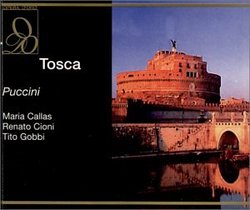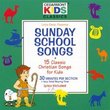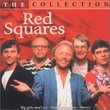| All Artists: Giacomo Puccini, Carlo Felice Cillario, Royal Opera House Chorus and Orchestra Covent Garden, David Sellar, Dennis Wicks, Edgard Boniface, Eric Garrett, Maria Callas, Renato Cioni, Robert Bowman, Tito Gobbi, Victor Godfrey Title: Puccini: Tosca Members Wishing: 0 Total Copies: 0 Label: Opera D'oro Release Date: 9/16/1997 Genre: Classical Styles: Opera & Classical Vocal, Historical Periods, Modern, 20th, & 21st Century Number of Discs: 2 SwapaCD Credits: 2 UPC: 723723133724 |
Search - Giacomo Puccini, Carlo Felice Cillario, Royal Opera House Chorus and Orchestra Covent Garden :: Puccini: Tosca
 | Giacomo Puccini, Carlo Felice Cillario, Royal Opera House Chorus and Orchestra Covent Garden Puccini: Tosca Genre: Classical
This performance--one of several from January 1964--marked Maria Callas's return to the stage after a period of vocal restudy and hard work. To be sure, there are problems. The very highest notes tend to go wildly astray, ... more » |
Larger Image |
CD DetailsSynopsis
Amazon.com This performance--one of several from January 1964--marked Maria Callas's return to the stage after a period of vocal restudy and hard work. To be sure, there are problems. The very highest notes tend to go wildly astray, flapping in the wind like flags, losing and regaining the pitch. But how many of them are there? Ten? Twenty? Taken in context, it's a mere handful (albeit a highly audible handful), and the performance as a whole does not suffer from them. In short, Callas is otherwise brilliant, acting with her voice to beat the band, and presenting us with a great portrait of Tosca the diva and Tosca the woman. Tito Gobbi, her frequent partner in this opera, is stunning as Scarpia, the incarnation of evil. Renato Cioni's Cavaradossi is unsubtle and forgettable, and he mewls enough to make himself a nuisance. Cillario's leadership is tight and sympathetic. This release is welcomed, even if you already own a Callas Tosca with the legend in fresher voice. --Robert Levine Similar CDs
|
CD ReviewsCallas & Gobbi...a thrilling team at Covent Garden, 1964 Paul A. Tassone | Glenwood, NSW , Australia | 06/02/2007 (4 out of 5 stars) "Maria Callas' assumption of Floria Tosca combined with Tito Gobbi's Scarpia are the stuff of legend. They made two complete recordings of these roles together, in 1953 and 1964 respectively, though it was only in 1964 and 1965 that they appeared together on stage in this opera. Fortunately, there are recordings of them playing these roles in the theatre that provide a glimpse of what it must have been like to be present on one of these monumental nights in the theatre.
This present recording is from early in the series of Callas/Gobbi/Zeffirelli Tosca's at Covent Garden, dating from Jan 24, 1964. And, to my ears it is a fine recording as it perfectly captures the spirit of those performances. While it is true that both Callas and Gobbi had lost much of their respective vocal splendour by this stage, they are without doubt Tosca and Scarpia and thrillingly bring to light these great characters as set to the music of Puccini. From Callas there are some wobbly high notes but in this particular performance they are kept to a minimum, perhaps 3-4 at most. Throughout, Callas sing excitingly though it is apparent that the power and volume of her voice is reduced. However, it is a fully committed performance from start to finish and her concentration and will power are as evident as is her vocal accomplishments in the role. It's a truly legendary performance. What is interesting is that Callas receives no ovation from the audience on her entrance though there is enthusiastic applause after each act and after her stunning "Vissi d'arte", sung simply and as the prayer that it is. Some people have well founded concerns about the sound quality of bootleg/private recordings of live performances such as this one. While the sound quality is less that would have been achieved in the studio or even if it had been recorded commercially, it is more than acceptable. Every word and syllable uttered is clear and the orchestra sounds vivid throughout. There are the inevitable sounds of the performers stomping around the stage and plenty of coughing from the audience but you do get a real sense of what it must have been like to be there. Also, the cost is so inexpensive it makes purchasing this set a given as it makes fascinating listening in comparison with the two Callas/Gobbi commercial recordings. True, there is no libretto but most Callas fans will already have at least one copy of the 1953 recording from EMI on CD so they will have a full libretto in a number of languages. My advice: for Callas and Gobbi fans, grab a copy. It's a fascinating snapshot of a wonderful night in the theatre. For those who want to hear Callas as Tosca, start with the 1953 recording. This one is Callas at the end of her career when the voice was in decline. The first studio recording has her at the very top of her game both vocally and interpretively. This recording is not definitive as that one will always be but it is worth a listen." |

 Track Listings (10) - Disc #1
Track Listings (10) - Disc #1

